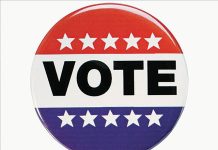By Cory Franklin
Guest columnist
Twenty years ago, when I was working in the intensive care unit, I saved a young man’s life. He was 19, and he was frothing at the mouth from lifethreatening fluid filling his lungs after he injected heroin. I did nothing brilliant — I simply placed a breathing tube in his throat so he could receive oxygen through a ventilator. Two days later, he was better and walked out of the hospital. But the story wasn’t so simple.
While the patient was gasping for air before I placed the tube, he told me he did not want the tube in his throat. I quickly explained to him that without the tube and the ventilator, he would die. But even as he was close to death, he was still adamant that he did not want the tube. I had to make a split-second decision, and I disregarded his wishes and placed the tube. When he left the hospital, he neither thanked me nor castigated me.
When members of my staff reviewed the case, several of them were furious with me. They vehemently disagreed with the decision to ignore his wishes, even if it meant he died. I explained that in the heat of the moment, I felt that he was speaking out of fear and that I could not be certain that was a true expression of his wishes. Those who disagreed were unmoved — I had violated the patient’s autonomy, and they were adamant that was the one sacrosanct value that doctors should never reject.
Whether you agree with my decision, I bring it up to illustrate a fundamental conflict in the debate about COVID-19 vaccination, a debate that the medical community has unwittingly encouraged.
For at least 50 years, autonomy — the patient’s right to determine his or her own care — has been stressed by both the medical and lay communities as the paramount value in medicine. Self-determination is embedded in the American ethos and has a long tradition in American medicine, dating to a 1914 medical negligence case. Autonomy, often restated as “my body, my decision,” is the bedrock principle behind medical issues
including abortion, physician-assisted death and informed consent to treatment.
Now the medical community faces a serious problem to which its members have unknowingly contributed with their long-standing wholesale emphasis on autonomy. Put simply, the consensus in this community declares that essentially all eligible Americans should be vaccinated against COVID-19.
Mandated universal vaccination would certainly cut the number of COVID-19 cases and deaths dramatically. Why not take that step?
Most of the anti-vaccination arguments do not stand up to scrutiny — the vaccines have been tested and are effective, safe and can be legally mandated in many settings. But one argument many people use as part of their refusal to be vaccinated is “my body, my choice,” the very principle of autonomy doctors and health care professionals have long prioritized as the cardinal virtue of medicine.
In a sense, the chickens have come home to roost. With nearly 700,000 U.S. deaths officially attributable to COVID-19, it can rightly be considered a public health emergency. In this case, autonomy might be subordinated to the greater good of the public; thousands of lives would be saved if the utilitarian argument prevailed. But how can physicians expect everyone to turn on a dime when for decades the medical community has been hammering home the preeminence of autonomy? Only now are we realizing that the price of that message was much higher than we thought.
Dr. Cory Franklin is a retired intensive care physician. Send comments to [email protected].




